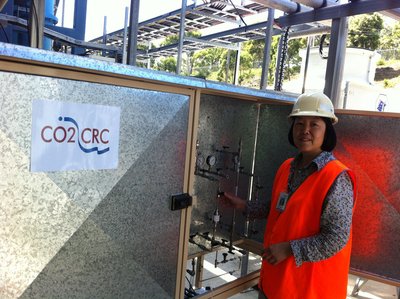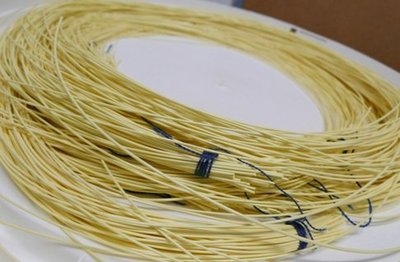Spaghetti-like membranes capture carbon dioxide
Wednesday, 19 March, 2014
CO2CRC researchers at the University of New South Wales (UNSW) have installed a custom-built rig at Delta Electricity’s Carbon Capture Research Facility at Vales Point Power Station to trial new hollow-fibre membranes for capturing carbon dioxide from power stations.

Currently, carbon dioxide is separated from flue gas using volatile liquid solvents, which are bulky and have a significant energy cost. Hollow-fibre membranes have the potential to substantially reduce the energy required to capture carbon dioxide, while having a smaller environmental and physical footprint than existing solvent systems.
The membrane modules contain hundreds of tiny spaghetti-like tubes which maximise contact between the gas and the membrane surfaces. Flue gas passes across the outside of the tubes but only carbon dioxide passes through to the inside.

The Vales Point rig is able to test three hollow-fibre modules at a time, providing the flexibility to test a range of new membrane formulations. The project is funded by Australian National Low Emissions Coal Research & Development (ANLEC R&D) and supported by Delta Electricity.
“The trials are an important step in developing effective membranes for industrial-scale use,” said Professor Dianne Wiley, CO2CRC Capture Program Manager.
“The new membranes are highly selective for carbon dioxide in the lab, but until we trial them with real flue gas, we won’t see how well they stand up to industrial conditions.”
Carbon capture and storage (CCS) is currently the only technology that can deal with the very large quantity of carbon dioxide emissions from fossil fuel combustion. CO2CRC has been developing innovative carbon capture systems since 2003.
Liquid metal to 'harvest' clean hydrogen from water
Researchers have created a process using liquid metals, powered by sunlight, that can produce...
How sustainability is shaping network strategy
For Australian enterprises entering 2026 planning cycles, sustainability is no longer sitting...
F-Gas Regulation: Turning necessity into opportunity
technotrans demonstrates how businesses can successfully manage this transition and turn...








